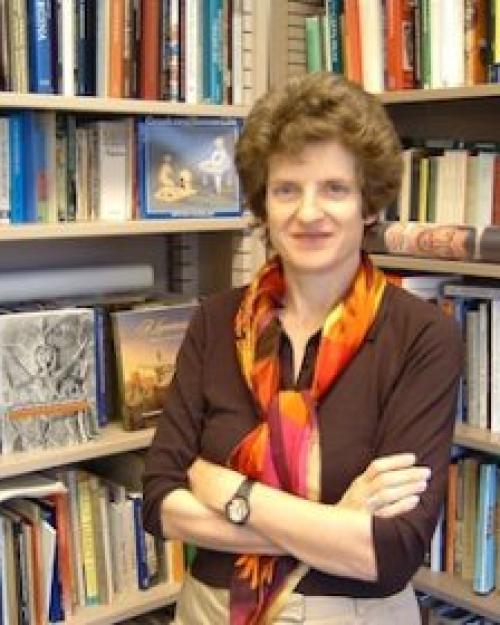Sarah Morris, Steinmetz Professor of Classical Archaeology and Material Culture in the Department of Classics and the Cotsen Institute of Archaeology at UCLA, will deliver the Townsend Lectures in the Department of Classics at Cornell on April 10, 12 and 15.
Since 1985, the Prescott W. Townsend Memorial Fund has supported annual lectures given by scholars of international reputation. The lectures, revised for publication, are published by Cornell University Press in the series Cornell Studies in Classical Philology.
Morris’ research involves the interaction of Greece with its Eastern neighbors, in art, literature, religion and culture. Her chief book on the subject, “Daidalos and the Origins of Greek Art” (Princeton, 1992) won the James Wiseman Book Award from the Archaeological Institute of America for 1993. She is also a practicing field archaeologist who has worked in Israel, Turkey, Greece and Albania, and has recently completed a field project at Methone in northern Greece.
Her trio of Cornell talks, “Out Of Anatolia: The Trojan War From Hatti To Hissarlik,” will investigate the prehistoric (second millennium BCE) context of what became known as the Trojan War with its epic story of the Greek expedition to attack Troy and recover Helen. She will also explore the many epic retellings that became the Homeric poems, notably the “Iliad” and “Odyssey,” known from and central to the first millennium BCE Aegean world, before focusing on the site of Hissarlik, which became a place of memory and ritual importance in Greek, Roman and later times, and still today (since excavations in the 19th century by Heinrich Schliemann).
“Homer’s ‘Iliad’ was embedded in a long history of military encounters and poetic memories. The origins of the narrative stretch back to the Late Bronze Age,” Morris writes describing her talks. Then, “during the first millennium BCE, names and places from those regions survived in local memory and inspired epic tales linked to Homeric personalities and adventures that unfolded beyond the events imagined around the ruins of Troy, which shaped the poetic work attributed to Homer. These parallel lives emerge through a close examination of early Greek art beyond Athens and in Archaic poetry, across the constellation of islands and cities named by Homer.
“Subsequently, the site of Troy (Hissarlik) “became the locus of ritual activity focused on ruins, then a new foundation as Greek and Roman Ilion, site of shrines and cults for heroes and gods and their festivals, and a destination of pilgrimage for visitors Hellenic and foreign, throughout its lasting history.”
Her talks are:
- "Out of Anatolia: The Prehistory of the Trojan War," April 10, 4:30-6 p.m., Kaufmann Auditorium, G64 Goldwin Smith Hall
- "Parallel Lives of Homeric Heroes: Epic Adventures Beyond Troy and Athens," April 12, 4:30-6 p.m., 253 Malott Hall
- "From Ilion to Hissarlik: The Evolution of Troy as a Sacred Landscape," April 15, 4:30-6 p.m., 253 Malott Hall
“Sarah has written several of the most original and innovative books and essays in classical art and archaeology over the past generation,” said Sturt Manning, Distinguished Professor of Arts and Sciences in Classical Archaeology. “A pioneer in recognizing and investigating the explanatory importance of the wider, especially eastern (Anatolian, East Mediterranean), connections of the Classical world, Sarah promises in her three Townsend Lectures to make us rethink—highlighting the Anatolian origins and associations of what is usually regarded as the quintessential beginnings of European literature: the works of Homer.”




